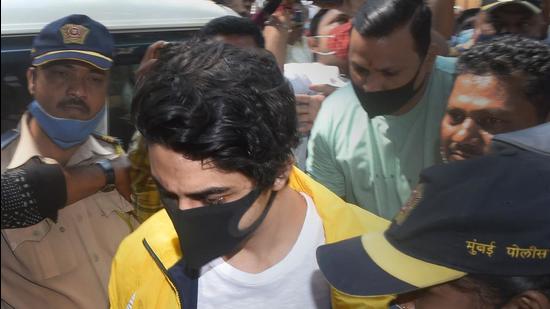The courts must crack down on prolonged detentions, make bail the general rule
Agencies should not blindly oppose the bail application of a suspect. Continued detention is justified only if there is a reasonable apprehension that the arrestee will disappear, tamper with the available evidence or intimidate witnesses
Irrespective of one’s views on the Aryan Khan case — and we believe that it is best left to the courts — it has thrown up a larger issue. As retired police officers, we are distressed about the violation of human rights by the judiciary. Our grievance relates to the tortuous processes set in motion for considering the application for bail of those held in custody.

Many hailed VR Krishna Iyer’s historic words — “bail is the rule and jail is an exception” — when they were pronounced. Subsequent events, however, have revealed that even the lower courts ignore this prescription. It is well established globally that there must be minimal arrests by enforcement agencies. They destroy individuals who may appear to have committed a crime, but may later be found to be innocent.
The arrest or detention of a suspect may be warranted in many cases. This is understandable. But the problem is that there is a high degree of discretionary power at the lower levels of many enforcement agencies. Also, cultural and leadership changes transform practices in many organisations. For instance, until the Emergency was declared in 1975, the Special Police Establishment (SPE), as the Central Bureau of Investigation (CBI) was known earlier, effected a minimum number of arrests. The floodgates opened thereafter, and we have now reached a situation where less rigid standards are applied to effecting arrests. This is deeply unfortunate.
The police in the states have an even worse record — they are even more arbitrary in their exercise of power, with many questionable and brazen arrests. The courts seldom intervene in such matters as expeditiously as they should do suo motu.
Our statutes cannot define when an arrest and detention are warranted. They can, at best, lay down the procedure for making a lawful arrest. This is because of the impracticality in laying down the grounds for an arrest. The constitutional embargo on detention beyond 24 hours without magisterial concurrence is good. But when the lower judiciary is cosy with the enforcement machinery, as they are in some parts of the country, human rights are in peril. A routine endorsement of the custody of suspects by law enforcement agencies is the order of the day.
In our view, arrests should be purely with a view to ferreting out all facts pertinent to a crime. Nothing more; nothing else. Interrogation of a suspect with the leave of the court for longer than 24 hours is not always warranted. An honest investigator should be able to get the most relevant facts within the time permitted for custody by the court. Identified witnesses should help. But to hold a suspect in custody just because one couldn’t obtain all the facts is egregiously wrong.
Agencies should not blindly oppose the bail application of a suspect. Continued detention in police or judicial custody is justified only if there is a reasonable apprehension that the arrestee will disappear, tamper with the available evidence or intimidate witnesses. Detention after securing evidence through the collection of records and witness statements is unethical and bad in law. This is the gold standard that should apply in criminal investigations.
The judiciary has a sacred duty here to protect every citizen’s fundamental rights. It has to be vigilant to ward off the derailing of human rights. And it must be cautious and avoid giving the impression that it cares more about keeping the executive in good humour than protecting suspects.
RK Raghavan is a former CBI director. He is a professor at the Jindal Global University. D Sivanandhan has served as DGP, Maharashtra and Commissioner of Police, Mumbai
The views expressed are personal
All Access.
One Subscription.
Get 360° coverage—from daily headlines
to 100 year archives.



HT App & Website







